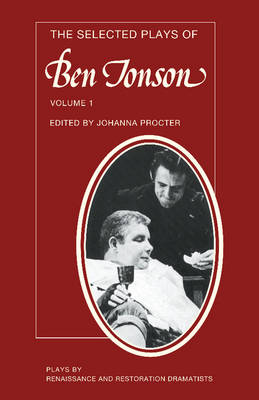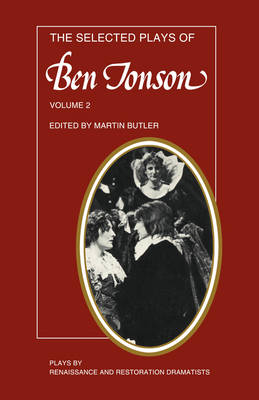Plays by Renaissance and Restoration Dramatists
2 total works
This volume contains three of Ben Jonson's greatest plays - Sejanus (1603), Volpone (1606) and Epicoene, or The Silent Woman (1609). Sejanus, an experimental tragedy written in the classical manner, was labelled a seditious work at the time of its first production and embroiled Jonson with the Privy Council. Volpone is the first of his mature comedies, with a remarkable cast of Venetian legacy-hunters: using verse of mock-heroic grandeur Jonson created in the character of Volpone one of his most flamboyant and cynical swindlers. Epicoene is a brilliant farce which makes fun of the pretensions of the courtiers, wits and bluestockings of contemporary London. Jonson was unique in his own time for the close personal supervision he gave to the publication of his plays. As a result, the early published texts of the plays in this volume carry an unusually high degree of authorial intention. In preparing this modernised edition an attempt has been made to conserve something of the author's highly individual treatment of names, verb forms and punctuation.
This volume brings together four of Ben Jonson's plays, two of his major works - The Alchemist (1610) and Bartholomew Fair (1614) and two from his later oeuvre: The New Inn (1629) and A Tale of a Tub (1633). The Alchemist is a major satire on folly and greed, brilliantly plotted and dazzling in its use of language. Bartholomew Fair, possibly Jonson's greatest achievement, reveals a panoramic depiction of London society. The New Inn and A Tale of a Tub suggest a different Jonson, exploring new forms and writing from a profoundly modified perspective. In The New Inn, a romantic comedy overlaid with an atmospheric melancholy and an ethical urgency, Jonson engages seriously for the first time with the conventions of non-satiric comedy. A Tale of a Tub, a riotous farce set in the early years of the reign of Queen Elizabeth, is now widely regarded as a nostalgic Jonsonian pastiche of Elizabethan popular drama. In recent criticism, Jonson's later career has been undergoing considerable reassessment, and this edition is the first that attempts to take this new view of Jonson into account. Dr Butler's edition is full and informative in its annotations and survey of criticisms to date, and cautiously respectful of Jonsonian punctuation.

